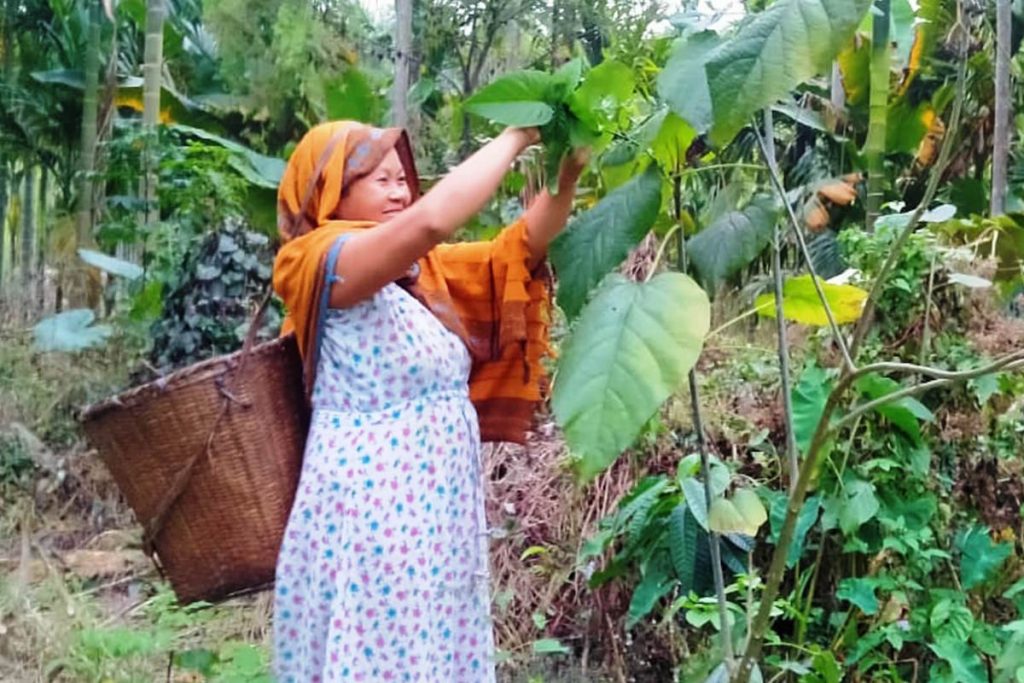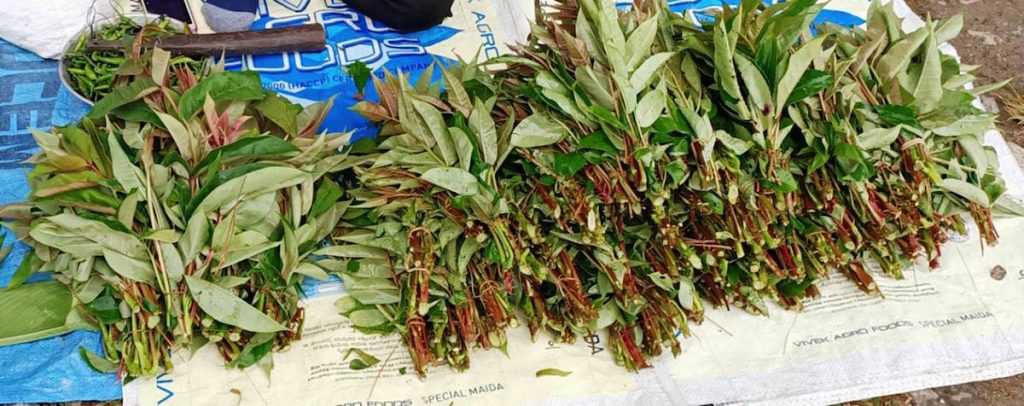
When she was a young girl, Ritu Perme, never ventured into the forests near her village in India’s north eastern state of Arunachal Pradesh. She had heard too many scary tales of demons and wild beasts lurking freely there waiting to devour any soul that dared pass by.
Now at the age of 43 Perme has found the forest as a bulwark against the fear of extreme poverty that followed when the anti-COVID nationwide lockdown was announced in March last year.
When that occurred Perme’s husband was an electrician with a private firm in Kolkata, the capital of India’s West Bengal state, and it wasn’t long until he was one of the millions across the country who became unemployed and had to return to their rural homes.
After returning to his wife and three children he found no work in the village and soon had to dig into their savings.
“We had saved money for repairing the house and for buying some livestock, but with what happened we had to spend everything on buying our daily needs,” Perme told LiCAS.news.
Sumna Maita, another woman from Perme’s village, was in a similar situation when her husband lost his job as a mason and returned home. They had to sell their only cow to keep themselves going through the lockdown.
“The cow was our only asset and my daughters cried that day when we had to sell it, but we had no option left. We were at the verge of starvation,” Maita said.
But hope soon came in the form of a church-run program that offered a way to help them get through the economic desolation of the lockdown.
Both women attended events held by a team from the church-run Seva Kendra Arunachal East (SKAE) who taught them how to make a living from the sustainable exploitation of ‘non-timber forest products’ including wild edibles. During the events a team of experts showed community members how to identify various wild edibles which grow in their area and which can be sold.
Mientu Mosahaari, the program coordinator, told LiCAS.news that such events were held with the tribal communities, especially with the women, in the area around July of last year.
“There is a huge demand in the markets for these wild edible products used in both nutritional and medicinal use. They are sometimes prescribed by doctors and at times used for making delicious meals,” Mosahaari said.

As part of the program, experts accompanied the women to the nearby forests and showed them how to recognize and gather the wild edible plants and fruits. They were also shown how to take what they had gathered and sell it for a proper rate at a nearby town.
“During my first time in the forests, I got plenty of ‘Teeta Patta’ (Clerodendrum) and ‘Dhekia Shak’ (Diplazium),” Perme said.
“I sold it in the store and got more than 500 rupees (about $8) for my work. It made me want to work more and now I earn more than 7,000 rupees ($100) a month by selling the wild edibles,” she said, saying it greatly helped her family’s financial situation.
Maita has now mastered the skill of easily identifying 10 edibles in the forest which she can sell.
“’Mejenga’, canes and mushrooms are in high demand. I am now saving enough for myself and for my children. I have recently brought them new dresses and new color pencils,” Maita said.
Mosahaari, the program coordinator, said that the church agency is planning to next teach how to grow wild edibles in backyard kitchen gardens.
“We hope that it further contributes to their economic self–dependence and help improve the living standards of the tribal women, their families and the community,” Mosahaari said.
Source: Licas Philippines
0 Comments